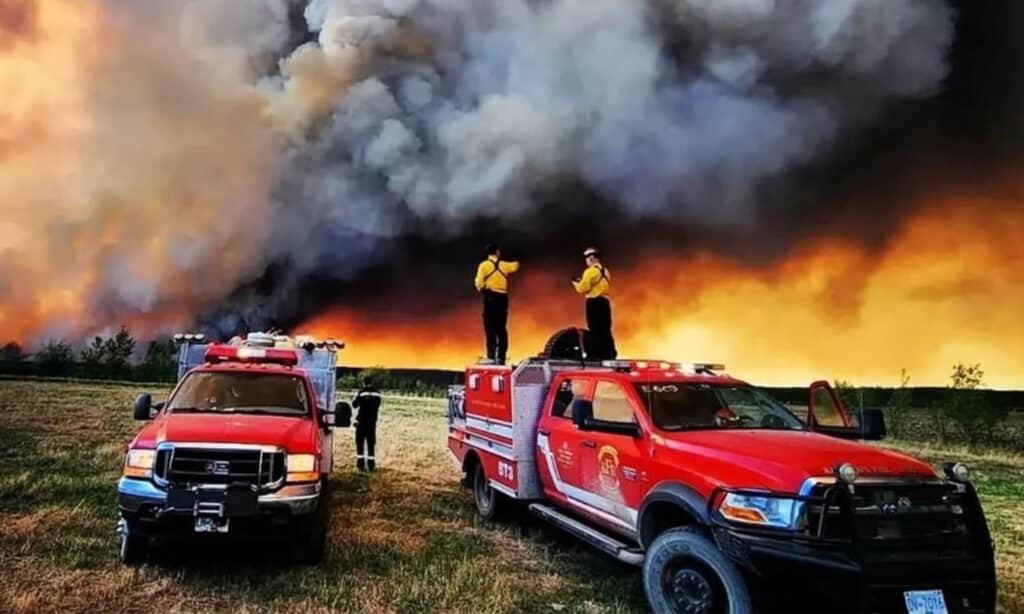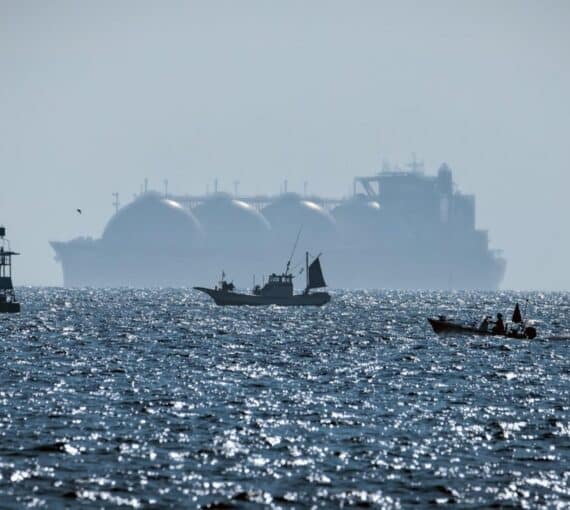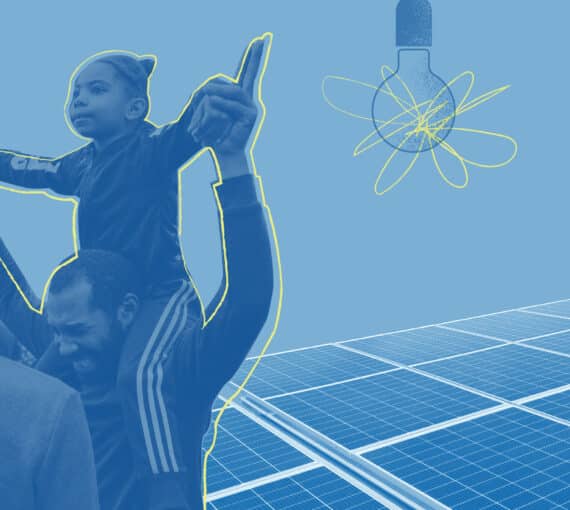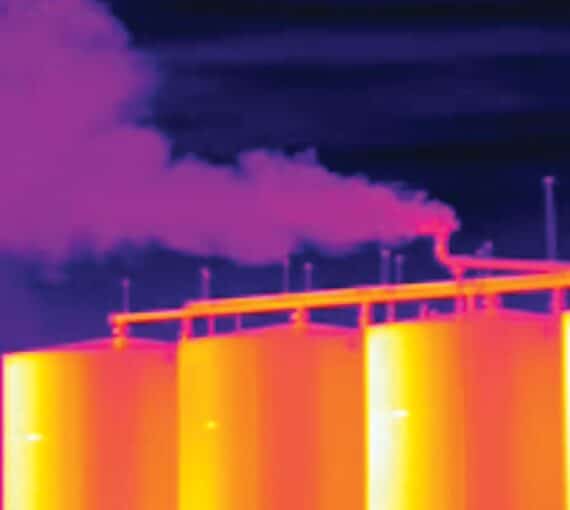
With the arrival of extreme fire season early in Alberta and B.C., people’s lives, homes and health are, again, at risk. (Photo: Kamloops Fire rescue via Reuters)
It’s the middle of May and Natural Resources Canada’s fire forecast indicates that most of the country faces a “well above-average forecast severity anomaly.” If you live in Fort St. John, in the heart of oil and gas country in B.C., you know this already, since you are on evacuation alert. And if you live in the nerve centre of Canada’s fossil fuel industry, Calgary, you know that it is not safe to go outside because of the toxic smoke blanketing the city from early, extreme wildfires. And if you are an Indigenous person in a remote community anywhere in Canada, you know that you again face the worst impacts of the climate emergency as it unfolds in what looks to be an existentially terrifying fire season.
I’ll leave it to the meteorologists and climate attribution scientists to parse the precise details of this year’s gathering storm. But we all know what is happening, and more and more studies are piling up to prove, yet again, that fossil fuels are lethal. The planet is rapidly warming and the clock is ticking down toward irreversible climate catastrophe if we don’t collectively reduce greenhouse gas emissions dramatically this decade.
The good news is that we have all the tools we need to make a rapid transition away from fossil fuels to renewable energy and a clean economy. The cost of renewable energy has plummeted in recent years at the same time as renewables have become ever more reliable at scale. Governments in various parts of the world are taking the climate crisis seriously, bending public resources toward the urgently needed transition required for humanity to survive, along with countless other species that face the growing impacts of burning coal, oil and gas.
The good news is that we have all the tools we need to make a rapid transition away from fossil fuels to renewable energy and a clean economy.
The bad news is that the fossil fuel industry continues to push for expansion in an increasingly pathological quest for profit. Rather than recognizing that we must move on from the way it’s always been (in living memory) so that we can survive and thrive in a different kind of world (one not powered by fossil fuels), big oil and gas companies are holding on to their wealth and influence in a death grip.
Here in B.C., where some of Canada’s most traumatic climate crisis impacts have occurred, the provincial government has taken some positive steps on climate through its CleanBC plan. At the same time, the government has continued to approve new fossil fuel projects even as the overwhelming body of scientific evidence tells us that we simply cannot build any more fossil fuel infrastructure anywhere if we wish to have a livable planet.
This contradictory approach to the most grave existential threat our species has ever faced was never more evident than in March, when the B.C. government approved a new LNG project days before the Intergovernmental Panel on Climate Change issued its most alarming report to date. The federal government — which has also taken a one step forward, two steps backward approach on climate — fully supported the approval of Cedar LNG. The government of Quebec showed climate leadership when it rejected a major LNG project in 2021, finding that, contrary to the proponent’s claims, it would not reduce global emissions.
This contradictory approach to the most grave existential threat our species has ever faced was never more evident than in March, when the B.C. government approved a new LNG project days before the Intergovernmental Panel on Climate Change issued its most alarming report to date.
All of that may sound like politics. And it is. But it adds up to where we are now. Extreme fires extremely early. Summer is not yet here and it is hot out there. Much hotter than it should be. People’s lives, livelihoods, homes, health and well-being are, again, at risk because of the choices we are and are not making about how to live on this planet.
This year’s fire and smoke season is suddenly upon us. Let’s use this frightening warning from nature to turn up the heat on decision-makers and inspire them to make the bold clean economy choices so badly needed for a wholesale transition in how we live and the energy we use in every part of our society.
This op-ed was originally published in The Province.
Our work
Always grounded in sound evidence, the David Suzuki Foundation empowers people to take action in their communities on the environmental challenges we collectively face.



